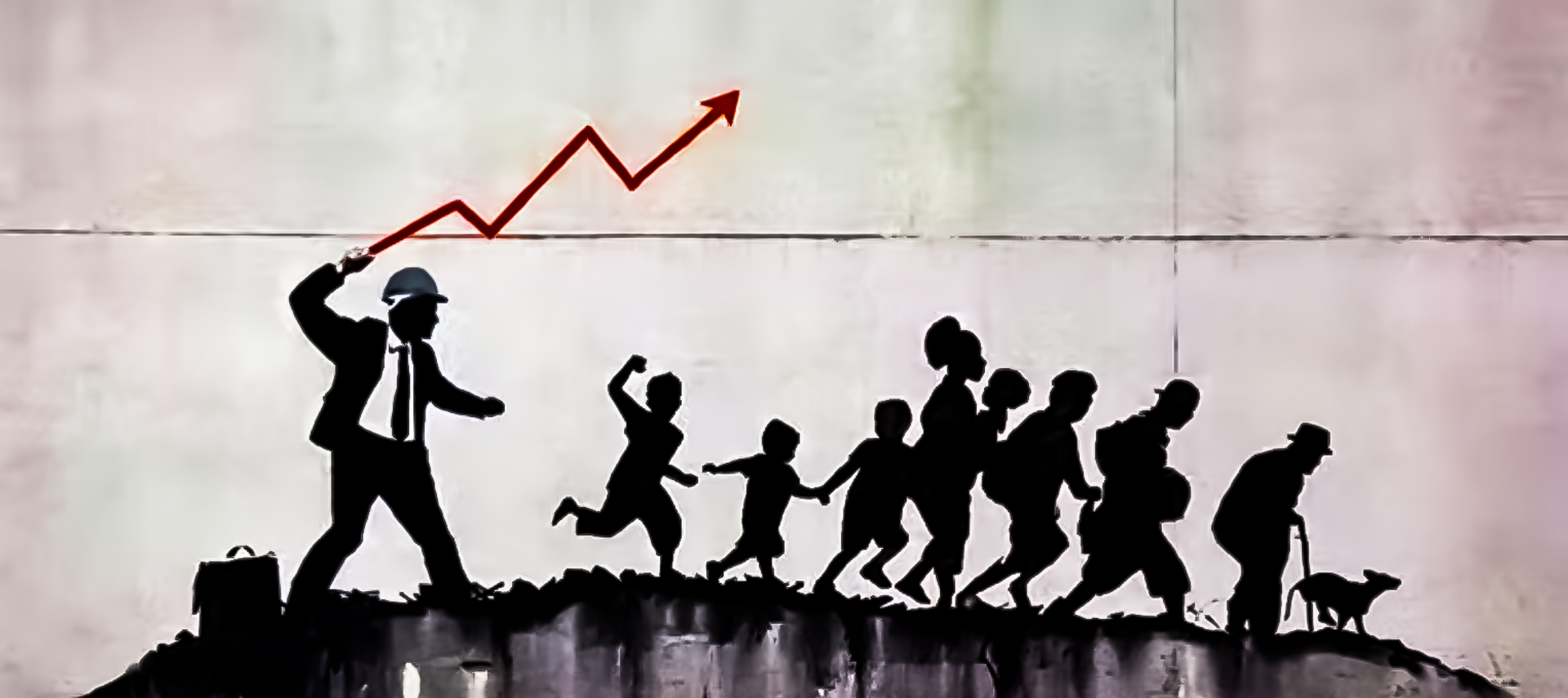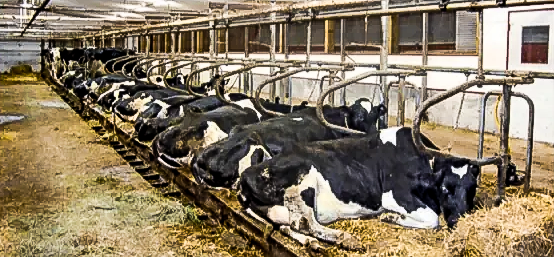Capital vs. Labor
Reading Marx’s Capital, Volume I (second series)
Online: Zoom link will be provided to registered participantsSecond series in our close reading and discussion of Marx's magnum opus, with Lisa Maya Knauer and other facilitators from the MEP's Capital Studies Group. This series covers parts 3 and 4 of Capital I, on the production of absolute and relative surplus-value.
Reading Du Bois’s Black Reconstruction
Online: Zoom link will be provided to registered participantsA close reading over 10 weeks of W.E.B. Du Bois's classic work, Black Reconstruction, with Sean Ahern. The book provides a basis for a much overdue revolution in US labor history. As Du Bois so eloquently and bluntly put in in 1935: “The South, after the war, presented the greatest opportunity for a real national labor movement which the nation ever saw or is likely to see again for many decades. Yet, the labor movement, with but few exceptions, never realized the situation. It never had the intelligence or knowledge, as a whole, to see in black slavery and Reconstruction, the kernel and meaning of the labor movement in the United States.”
Animals at Work Under Capitalism
Online: Zoom link will be provided to registered participantsA discussion and reading group on the central role of human and nonhuman animal labor in the capitalist economy, both historically and today. What are the anthropocentric premises underlying mainstream understandings of labor in Marxist theory? How might we expand our thinking to include the multiple forms of nonhuman labor necessary for capitalism? What kinds of labor do nonhuman animals provide in production, and on what cultural, ideological and economic bases is work divided among people, nonhuman animals and machines?
Political Writings of Marx and Engels III
Online: Zoom link will be provided to registered participantsDiscussion of texts by Marx and Engels on India, China, and European colonialism; essays on the Civil War in the United States; documents related to the International Workingmen's Association; Marx's classic The Civil War in France and related essays; polemics against Bakunin; and Marx's correspondence about the rise of the workers' political party in Germany, including his Critique of the Gotha Program.
Reading Marx’s Capital, Volume I (second series)
Online: Zoom link will be provided to registered participantsSecond series in our close reading and discussion of Marx's magnum opus, with Lisa Maya Knauer and other facilitators from the MEP's Capital Studies Group. This series covers parts 3 and 4 of Capital I, on the production of absolute and relative surplus-value.
Reading Du Bois’s Black Reconstruction
Online: Zoom link will be provided to registered participantsA close reading over 10 weeks of W.E.B. Du Bois's classic work, Black Reconstruction, with Sean Ahern. The book provides a basis for a much overdue revolution in US labor history. As Du Bois so eloquently and bluntly put in in 1935: “The South, after the war, presented the greatest opportunity for a real national labor movement which the nation ever saw or is likely to see again for many decades. Yet, the labor movement, with but few exceptions, never realized the situation. It never had the intelligence or knowledge, as a whole, to see in black slavery and Reconstruction, the kernel and meaning of the labor movement in the United States.”
Animals at Work Under Capitalism
Online: Zoom link will be provided to registered participantsA discussion and reading group on the central role of human and nonhuman animal labor in the capitalist economy, both historically and today. What are the anthropocentric premises underlying mainstream understandings of labor in Marxist theory? How might we expand our thinking to include the multiple forms of nonhuman labor necessary for capitalism? What kinds of labor do nonhuman animals provide in production, and on what cultural, ideological and economic bases is work divided among people, nonhuman animals and machines?
Political Writings of Marx and Engels III
Online: Zoom link will be provided to registered participantsDiscussion of texts by Marx and Engels on India, China, and European colonialism; essays on the Civil War in the United States; documents related to the International Workingmen's Association; Marx's classic The Civil War in France and related essays; polemics against Bakunin; and Marx's correspondence about the rise of the workers' political party in Germany, including his Critique of the Gotha Program.
Reading Marx’s Capital, Volume I (second series)
Online: Zoom link will be provided to registered participantsSecond series in our close reading and discussion of Marx's magnum opus, with Lisa Maya Knauer and other facilitators from the MEP's Capital Studies Group. This series covers parts 3 and 4 of Capital I, on the production of absolute and relative surplus-value.
Reading Du Bois’s Black Reconstruction
Online: Zoom link will be provided to registered participantsA close reading over 10 weeks of W.E.B. Du Bois's classic work, Black Reconstruction, with Sean Ahern. The book provides a basis for a much overdue revolution in US labor history. As Du Bois so eloquently and bluntly put in in 1935: “The South, after the war, presented the greatest opportunity for a real national labor movement which the nation ever saw or is likely to see again for many decades. Yet, the labor movement, with but few exceptions, never realized the situation. It never had the intelligence or knowledge, as a whole, to see in black slavery and Reconstruction, the kernel and meaning of the labor movement in the United States.”
Political Writings of Marx and Engels III
Online: Zoom link will be provided to registered participantsDiscussion of texts by Marx and Engels on India, China, and European colonialism; essays on the Civil War in the United States; documents related to the International Workingmen's Association; Marx's classic The Civil War in France and related essays; polemics against Bakunin; and Marx's correspondence about the rise of the workers' political party in Germany, including his Critique of the Gotha Program.
Reading Marx’s Capital, Volume I (second series)
Online: Zoom link will be provided to registered participantsSecond series in our close reading and discussion of Marx's magnum opus, with Lisa Maya Knauer and other facilitators from the MEP's Capital Studies Group. This series covers parts 3 and 4 of Capital I, on the production of absolute and relative surplus-value.
Reading Du Bois’s Black Reconstruction
Online: Zoom link will be provided to registered participantsA close reading over 10 weeks of W.E.B. Du Bois's classic work, Black Reconstruction, with Sean Ahern. The book provides a basis for a much overdue revolution in US labor history. As Du Bois so eloquently and bluntly put in in 1935: “The South, after the war, presented the greatest opportunity for a real national labor movement which the nation ever saw or is likely to see again for many decades. Yet, the labor movement, with but few exceptions, never realized the situation. It never had the intelligence or knowledge, as a whole, to see in black slavery and Reconstruction, the kernel and meaning of the labor movement in the United States.”
‘The Man Who Changed Colors’
Recording available on YouTubeVideo available at https://youtu.be/ABOczzUs8nQ
Bill Fletcher Jr's 'The Man Who Changed Colors' delves into the complicated relationships between Cape Verdean Americans and African Americans, Portuguese fascist gangs, and abusive shipyard working conditions. When a dockworker falls to his death under strange circumstances, investigative journalist David Gomes is on the case. His dogged pursuit of the truth puts his life in danger and upends the scrappy Cape Cod newspaper he works for.
Political Writings of Marx and Engels III
Online: Zoom link will be provided to registered participantsDiscussion of texts by Marx and Engels on India, China, and European colonialism; essays on the Civil War in the United States; documents related to the International Workingmen's Association; Marx's classic The Civil War in France and related essays; polemics against Bakunin; and Marx's correspondence about the rise of the workers' political party in Germany, including his Critique of the Gotha Program.


